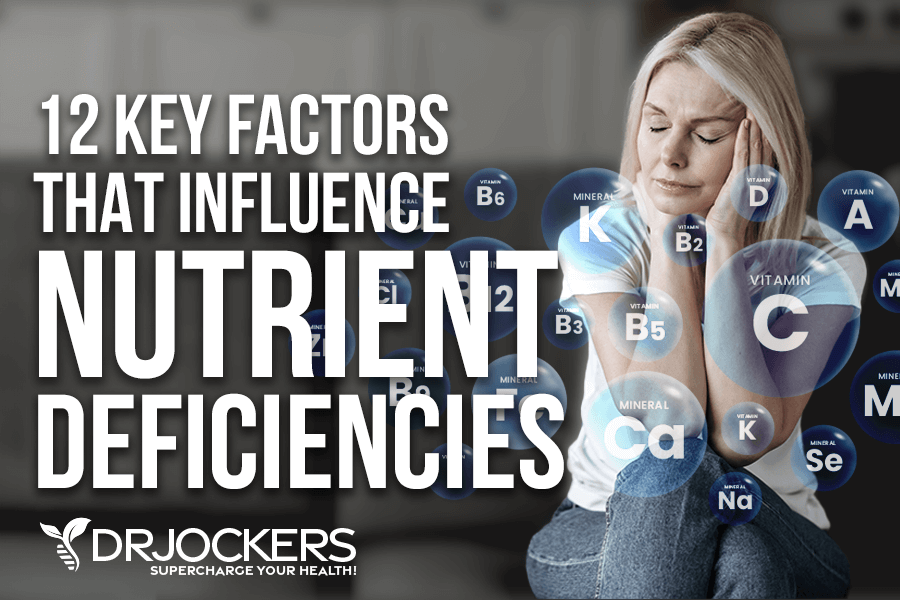 12 Surprising Factors That Influence Nutrient Deficiencies
12 Surprising Factors That Influence Nutrient Deficiencies
Nutrient deficiencies are a common root issue behind chronic symptoms, chronic health issues, and risk factors for chronic disease. While you may develop nutrient deficiencies due to a poor diet, the cause of nutrient deficiencies can go beyond poor nutrition. Correcting the root issues behind nutrient deficiencies and taking steps to improve nutrient intake and nutrient absorption can help you achieve optimal nutrient levels and improve your overall health.
You will learn about the role of nutrients in your body. You will go over the difference between optimal and adequate nutrient levels, marginal deficiencies, deficiencies, and nutrient toxicity. I will discuss the 12 key factors that influence your nutrient status. Finally, I will share my best ways to support an optimal nutrient status to improve your health.
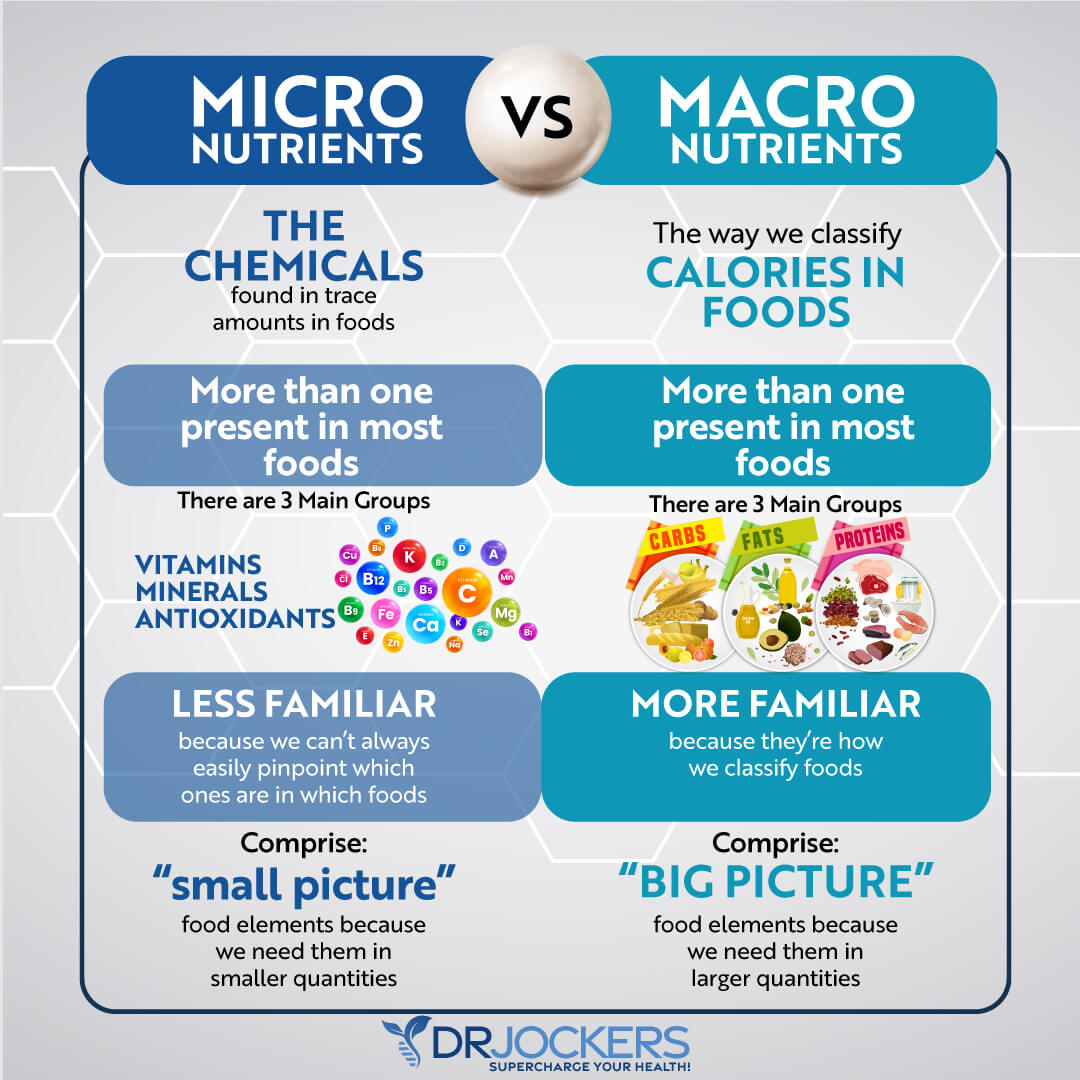
The Role of Nutrients in the Body
Macronutrients are nutrients that your body needs in large amounts. They include protein, fats, and carbohydrates. Micronutrients are nutrients that your body requires in smaller amounts. Micronutrients include vitamins and minerals.
Minerals are inorganic materials found in soil and water and make it into our food through that. Vitamins are organic compounds made by plants and animals. Minerals cannot be broken down, however, vitamins can be by water, heat, or acid, depending on the vitamin.
Your body needs both macronutrients and micronutrients. Macronutrients offer a solid foundation for your body, they provide structure and support, just like the walls and the roof of your house. Micronutrients help to create balance, safety, and health. They are like the electrical wiring, plumbing, and other smaller yet critical pieces of a home.
They are crucial for your immune function, growth and development, metabolism, hormonal health, brain health, energy levels, and other key components of your optimal health. Nutrients are essential for energy production, building and repair processes, DNA synthesis and repair, cellular signaling and communication, and maintaining cellular homeostasis.
Micronutrients work together as a team. If you are deficient in one micronutrient, chances are you may become deficient in another one. This may compromise overall health and balance. Since your body cannot make micronutrients, you have to meet your needs with nutrient-dense foods from plant and animal sources.
However, due to our depleted soils, environmental toxicity, chronic health issues, and other reasons, meeting your needs through food alone may not be possible, even if you are following the healthiest diet. Supplementation is often recommended or even necessary, especially if you have or are at risk of nutrient deficiencies.
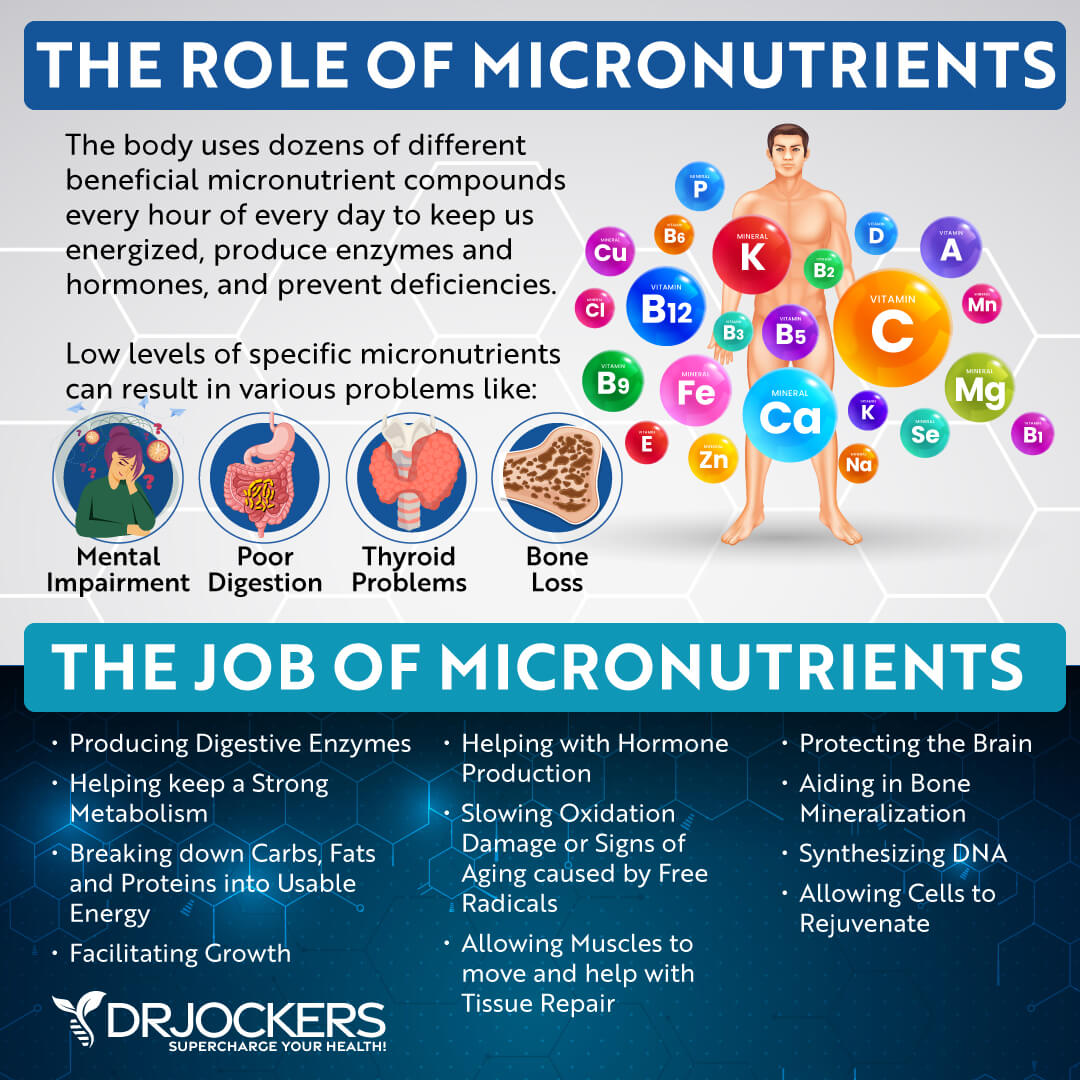
What Are Appropriate Nutrient Levels
So how many nutrients do you need? The answer is not that simple. If you meet the bare minimum, your doctor may say that you are doing fine.
Some doctors don’t take minor deficiencies or borderline lower-end-normal levels seriously. However, ideally, you want to achieve optimal status for optimal health. But what does this mean? Let’s get into it.
Optimum Status
If you want optimal health and the lowest risk of health issues, you want to aim for optimal nutrition status. Looking at the optimal status of each nutrient helps us understand what levels you need for the best possible metabolic, organ, and body function.
Traditional medicine practitioners rarely look at these levels simply because they are not even taught the importance of this. Functional medicine and integrative medicine practitioners, however, put a strong focus on optimal nutrient levels for optimizing health, reducing the risk of disease, and promoting longevity.
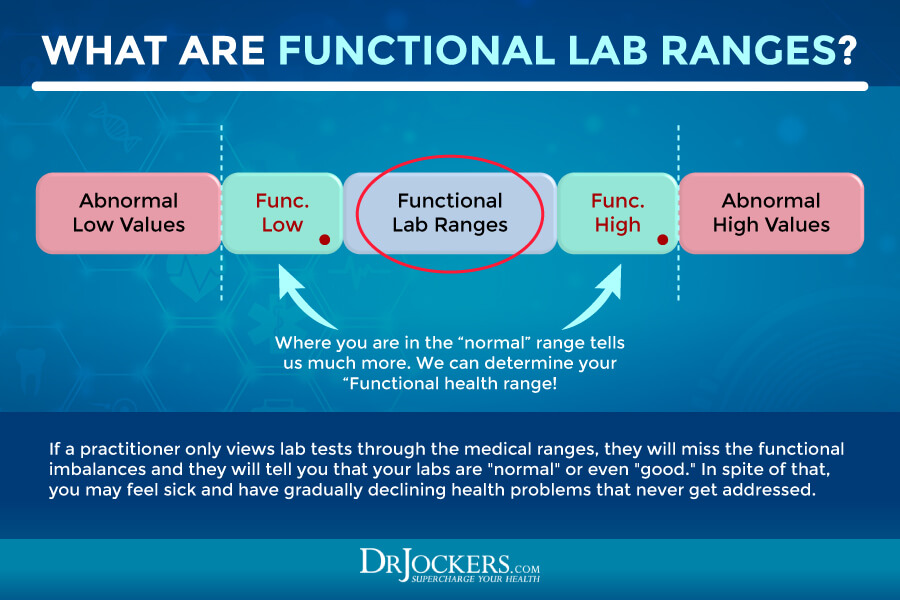
Adequate Status
Governmental recommendations for the adequate status of nutrients. Their guidance is based on the Recommended Daily Allowance (RDA) guidelines (1). These guidelines were developed by looking at healthy populations with the aim of avoiding major deficiencies.
While there is some recent focus on preventing chronic diseases, there is still no focus on individual optimizations. The guidelines may focus on different recommendations based on age, gender, pregnancy, and breastfeeding.
However, it doesn’t take into account more nuanced individual differences based on a variety of health, lifestyle, and other individual factors. Low nutrient levels are common even when meeting the RDA intake of nutrients.
Marginal Deficiency
There are different levels of nutrient deficiencies as well. Falling just below adequate levels can result in marginal deficiency. Marginal deficiency may not compromise metabolic, organ, and body functions, so it may not be taken seriously by many doctors.
Not to mention that most doctors don’t even test for most micronutrients, besides vitamin D, iron, and B12, except if there is a major health issue going on. Functional medicine practitioners, however, put a major focus on correcting even minor marginal deficiencies in order to achieve optimal health and reduce risk factors of disease.
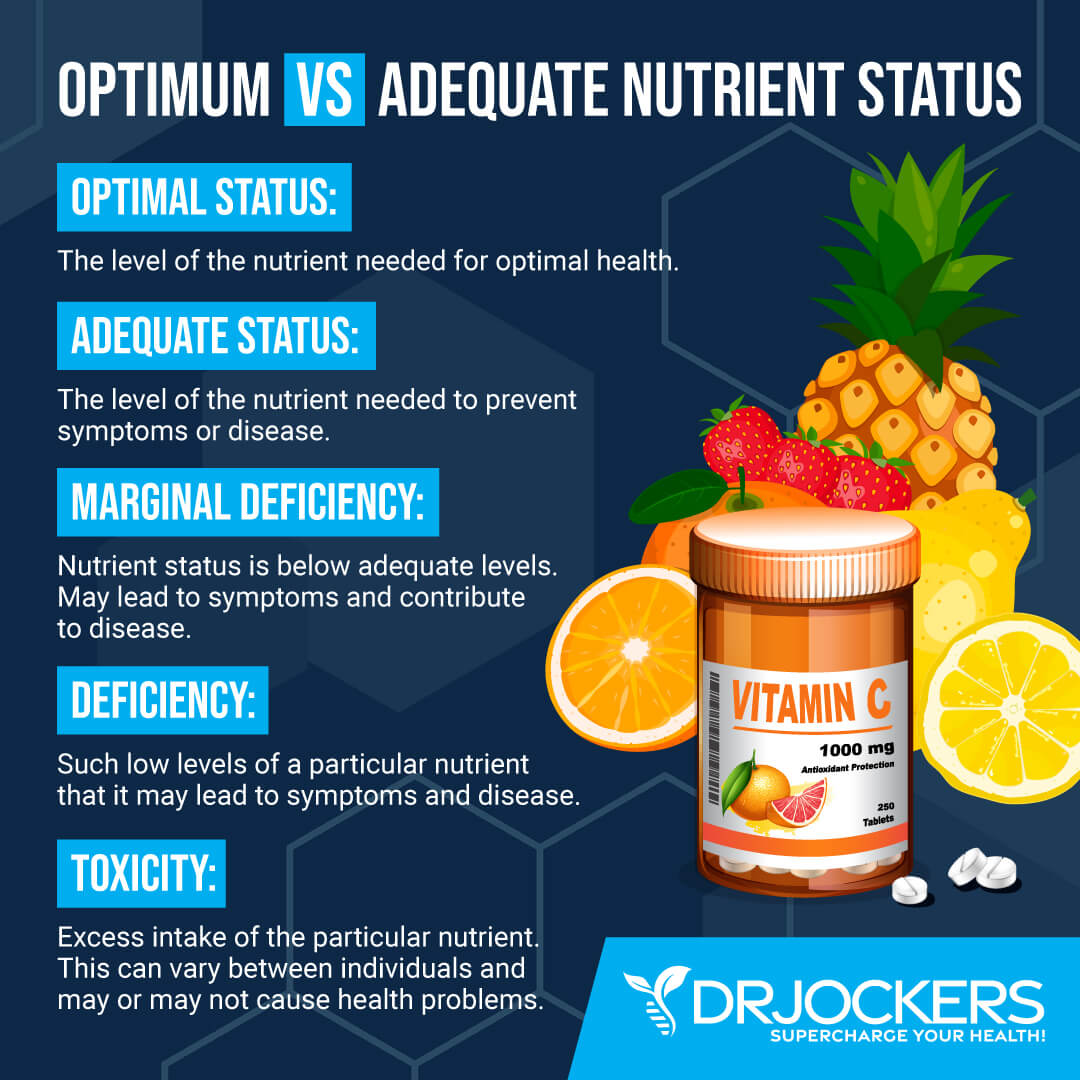
Deficiency
Deficiency refers to more serious nutrient deficiencies that can lead to more serious diseases. For example, vitamin C deficiency can cause scurvy, and vitamin D deficiency can cause rickets. Fortunately, these deficiencies are rare in developed countries, which leads doctors to shift away from focusing on nutrient statuses so much.
Toxicity
We talk about nutrient deficiencies a lot. But can you have too much of a good thing? Yes, you can. Just like developing the RDA, governmental guidelines also offer a Tolerable Upper Intake Level (UL) for many nutrients to prevent toxicity and health issues from excess nutrients.
In some cases, when there is a serious health issue, it may be necessary to go above UL guidelines for the short term. However, generally speaking, it’s important to pay attention to UL guidelines and not overdose yourself on supplements. That being said, most people are struggling to meet their nutrient needs instead of dealing with toxicity.
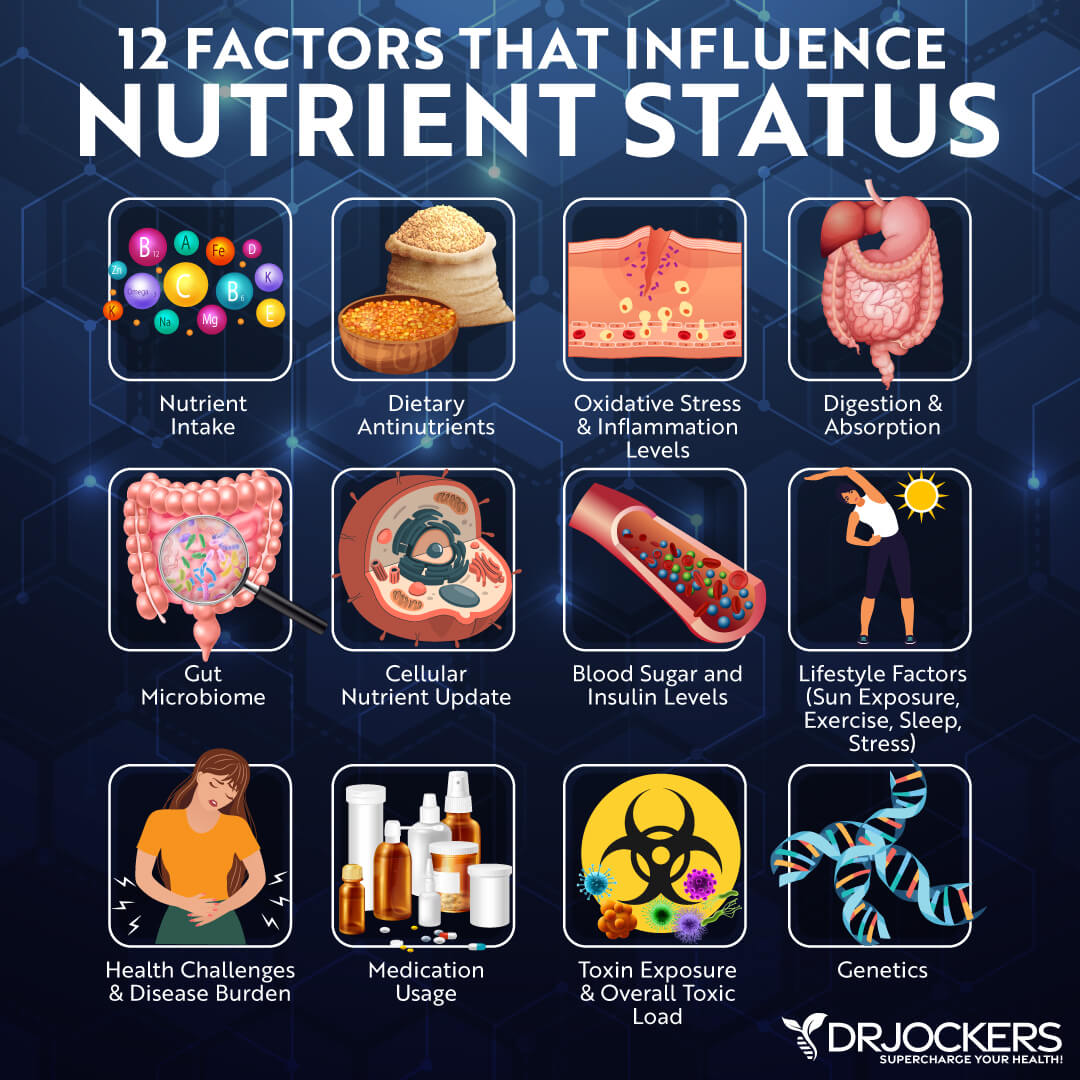
12 Factors That Influence Nutrient Status
So, what can lead to nutrient deficiencies? What factors can influence your nutrient status? Let’s get into it.
Nutrient Intake
The most obvious way to achieve adequate or optimal nutrient status is through adequate nutrient intake. If your nutrient intake is not optimal or adequate, you are running the risk of developing nutrient deficiencies.
According to a 2022 review published in the Journal of Preventative Medicine and Hygiene, you may have subpar nutrient intake for a variety of reasons, including environmental factors, such as food scarcity, health issues, and diet (2). Following a poor diet with lots of low-nutrient processed foods and not enough nutrient-dense whole foods can set you up for poor nutrient intake and nutrient deficiencies.
Even if you are mostly or only consuming high-nutrient healthy foods, you may not be covering your nutrient intake requirements if you are not eating enough due to calorie restriction, dieting, or other reasons.
Moreover, the nutrient density of our foods is affected by the quality of our soils. Eating disorders and disordered eating can interfere with nutrition intake, either due to calorie restriction, restriction of certain types of foods, purging, or other disordered habits.
Early picking, storage, transportation, processing, and cooking may interfere with your food’s nutrient levels. If your food is not coming from healthy soil, even your fruits and veggies won’t have enough nutrients in them. Unfortunately, this is a serious issue that may require supplementation even in those who are following a healthy diet.
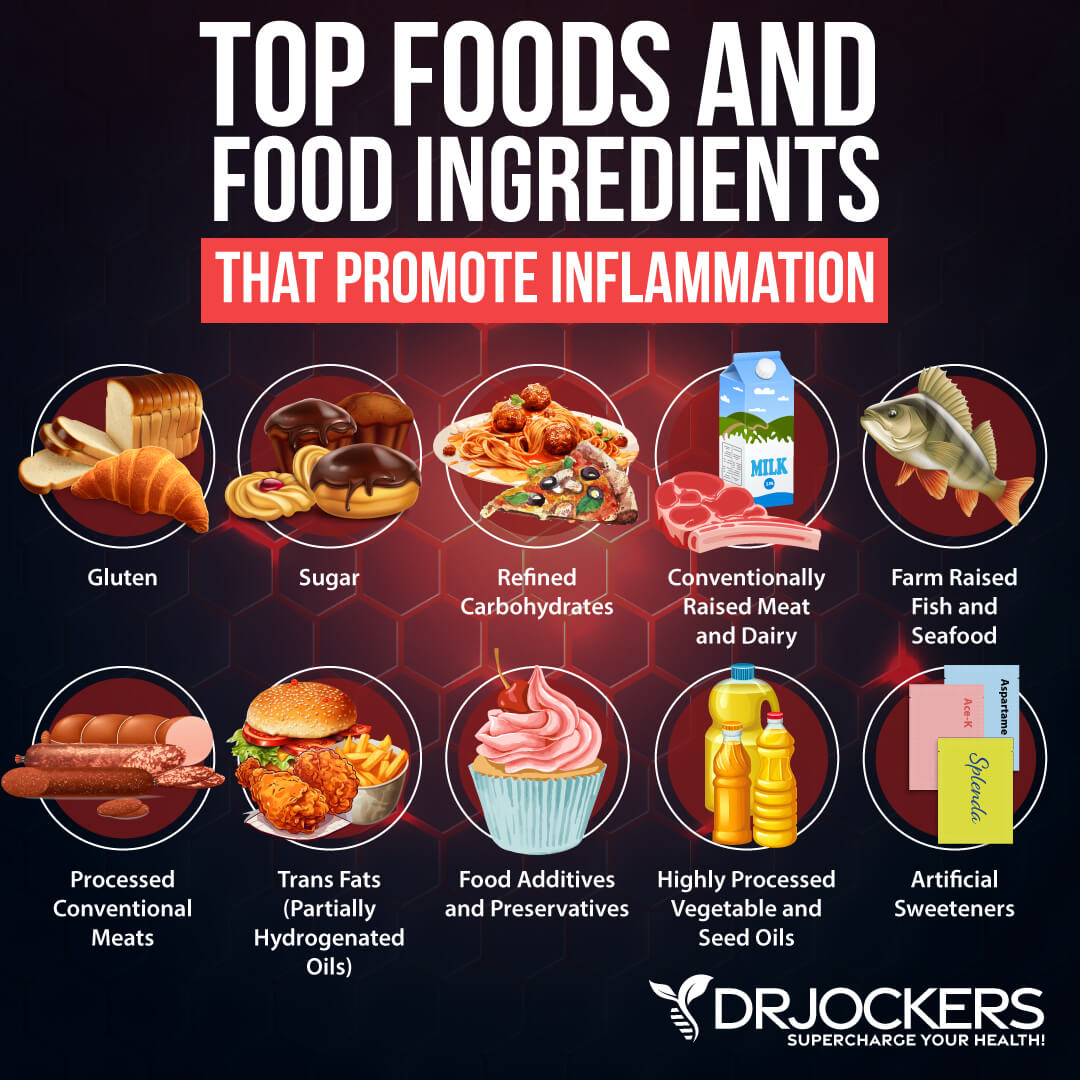
Dietary Antinutrients
It is not enough to take in enough nutrients. Your body has to absorb these nutrients. Certain foods, called antinutrients, may interfere with the absorption of certain nutrients and the digestion of your foods. Antinutrients include lectins, goitrogens, salicylates, phytates, and oxalates.
According to a 2020 review published in Nutrients, antinutrients in high amounts or administered in isolation may lead to health issues, however, when prepared properly or used in lower amounts, they may not be an issue (3).
Sprouting, soaking, fermentation, and certain cooking methods may decrease the antinutrient effects of these foods. However, some people simply have to limit or avoid foods that are high in one or all of these anti-nutrients.
Insulin, Oxidative Stress, and Inflammation Levels
Oxidative stress and chronic inflammation may increase the risk of various diseases that may lead to digestion issues, malabsorption, or higher nutrient intake. According to a 2023 review published in Nutrients, chronic inflammation is a key driving factor behind disease-related nutrient deficiencies, increasing the risk of reduced food intake, insulin resistance, and muscle catabolism (4).
Insulin resistance may also increase cellular uptake and gut health issues. Insulin resistance, oxidative stress, and higher inflammation may also increase your need for nutrients. Thus, even an adequate nutrient intake (RDA) may not be enough. However, according to this 2023 review, nutritional interventions may help to reduce inflammation and related problems (4).
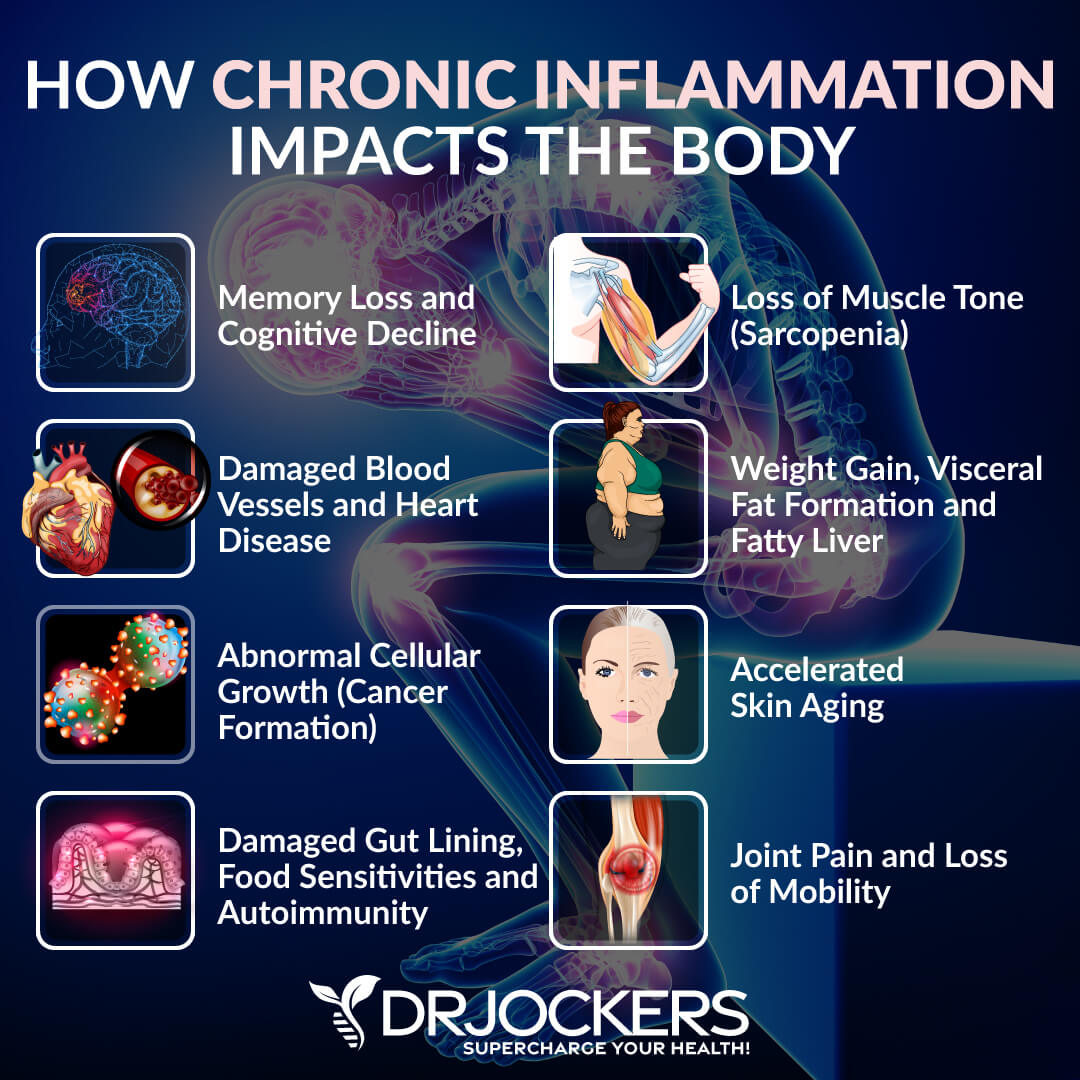
Digestion & Absorption
Your body needs to be able to use the nutrients you put in. This means breaking down food, absorbing nutrients, and proper digestion. Digestion is a long process. The enzymes in your saliva and proper chewing start the process.
Then stomach acid, bile release, and pancreatic secretion help to continue digestion and the absorption of nutrients. According to a 2021 review published in Nutrients, numerous health issues, including diseases of the pancreas, liver, biliary tract, and stomach, may cause nutrient malabsorption and related symptoms (5).
Moreover, being in a fight-or-flight mode or poor vagal tone may also interfere with gut function and digestion. Your body simply cannot focus on digestion when it’s in constant fight-or-flight.
According to a 2019 review published in Integrative Medicine (Encinitas), chronically elevated cortisol from a constant flight-or-fight mode and chronic stress may cause impaired digestive functions, including poor absorption of nutrients, chronic inflammation, leaky gut syndrome, and abdominal pain (6).
Mindful eating, other mind-body practices, reducing stress, and cultivating autonomic nervous system (ANS) homeostasis may help. Using a comprehensive stool analysis such as the GI MAP and looking at other markers of gut health may help to spot issues with digestion.
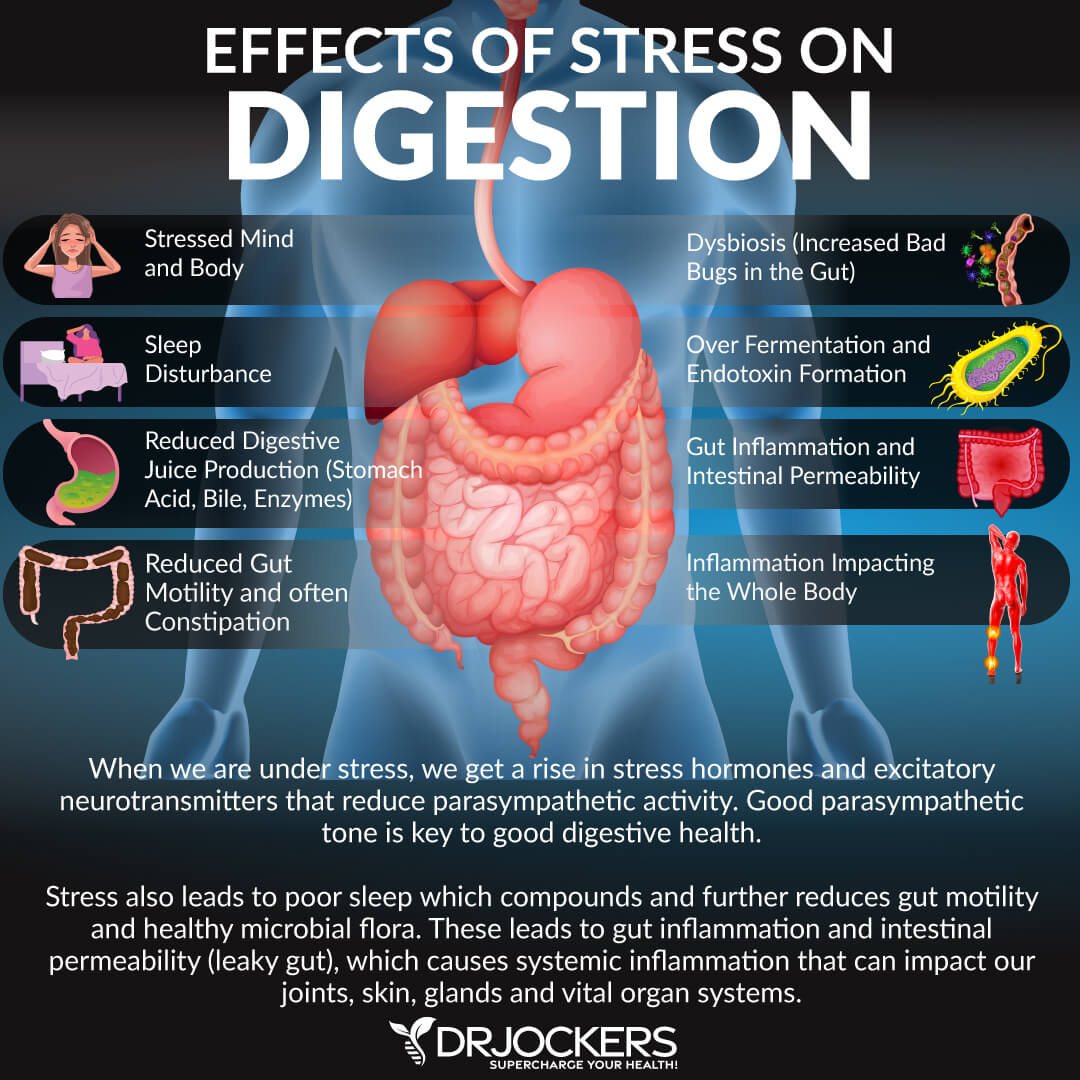
Gut Microbiome
Your gut microbiome plays an enormous role in nutrient absorption, digestion, and nutrient levels. Moreover, beneficial bacteria in your gut actually produce several important nutrients including vitamin K and B vitamins.
If you are dealing with gut microbiome imbalances, it may lead to low levels of these nutrients. According to a 2016 review published in Medical Hypotheses, vitamin D deficiency may alter the gut microbiome, resulting in poor vitamin B production and related inflammation (7).
Gut dysbiosis may also interfere with nutrient absorption and nutrient deficiencies, especially zinc and iron issues. According to a 2021 review published in Nutrients, improving zinc and iron levels may help to improve gut microbiome health (8). Again, a comprehensive stool analysis and a urinary organic acid test can help us spot gut microbiome issues behind nutrient deficiencies.
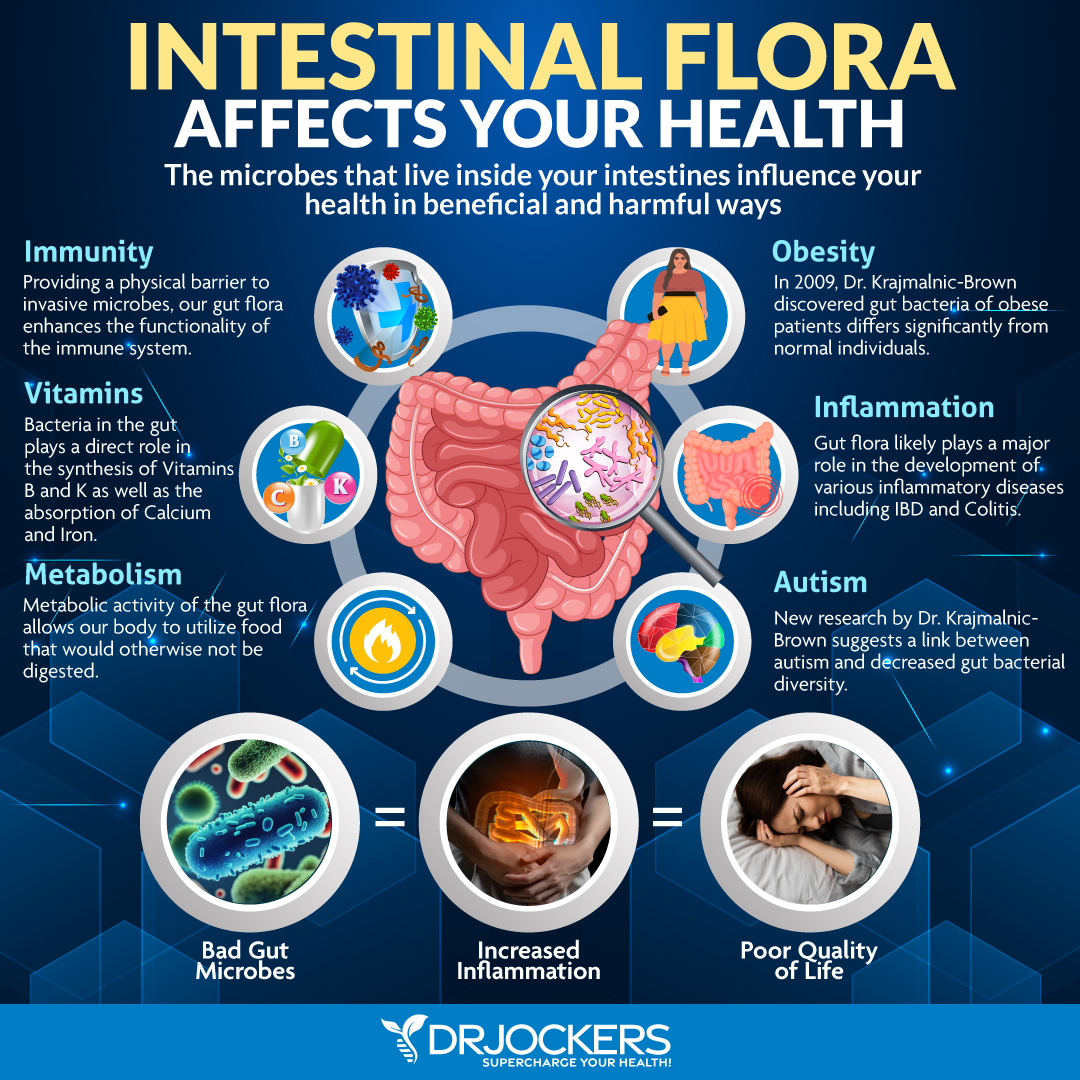
Cellular Uptake
Once your body absorbs nutrients, they enter into the circulatory system to eventually be taken up by your cells to be used for a variety of functions. A number of issues can interfere with this. Hormonal imbalances and high insulin levels can lower the intake of nutrients in your cells. Cellular nutrient uptake is really important.
According to a 2021 review published in Molecular Cell, nutrient uptake plays a role in many health issues, and poor uptake may increase the risk of cancer (9). Functional tests can help us to spot various pathways that are affected and the root causes of the issue if cellular uptake is an issue.
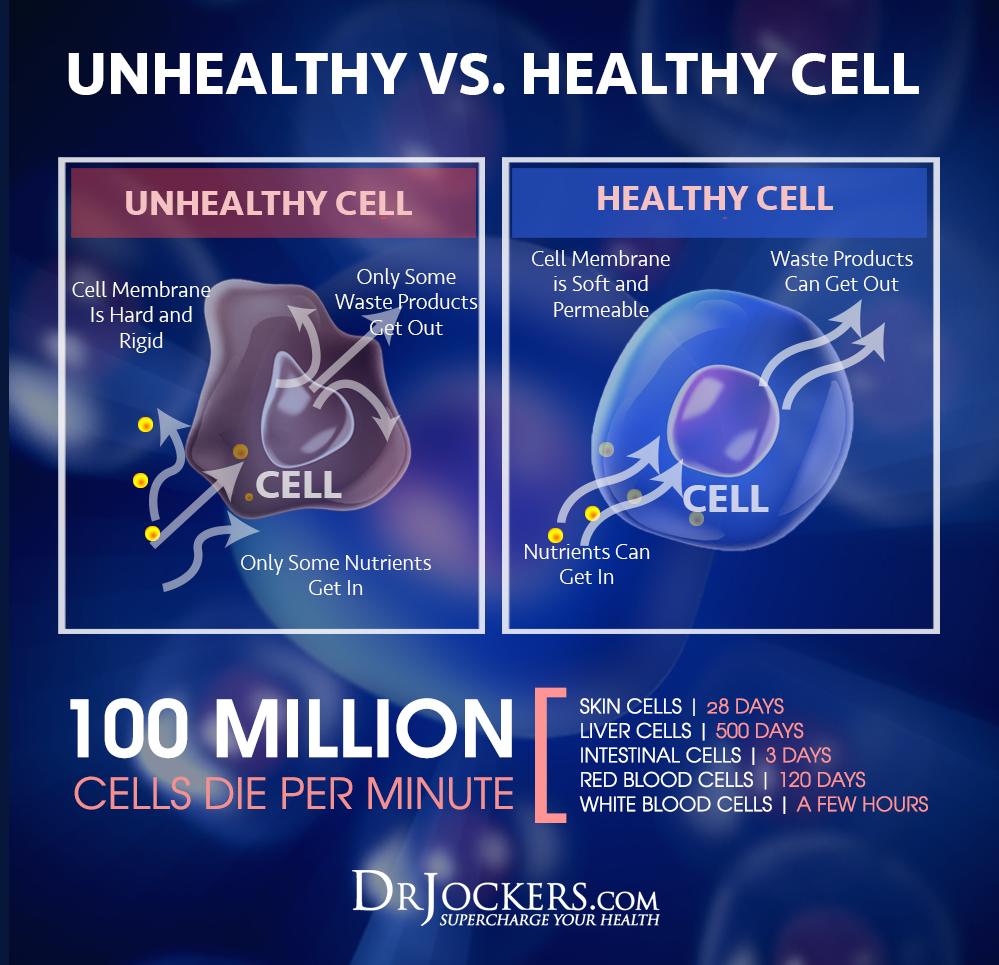
Blood Sugar, Insulin & Inflammation Levels
According to a 2023 review published in Nutrients, chronic inflammation is a key driving factor behind disease-related nutrient deficiencies, and improving nutrient levels may help (4). High blood sugar levels and higher insulin levels may interfere with cellular uptake. Higher inflammation levels may also cause less cellular uptake.
According to a 2022 review published in Nutrient, Metabolism, and Cardiovascular Diseases, a high-calorie, low-nutrient diet may increase insulin resistance, but improving nutrient levels may improve insulin sensitivity (10). Chronic inflammation and oxidative stress may also lead to a variety of digestive, hormonal, or other issues that may increase the risk of poor nutrient absorption or a higher need for nutrients.
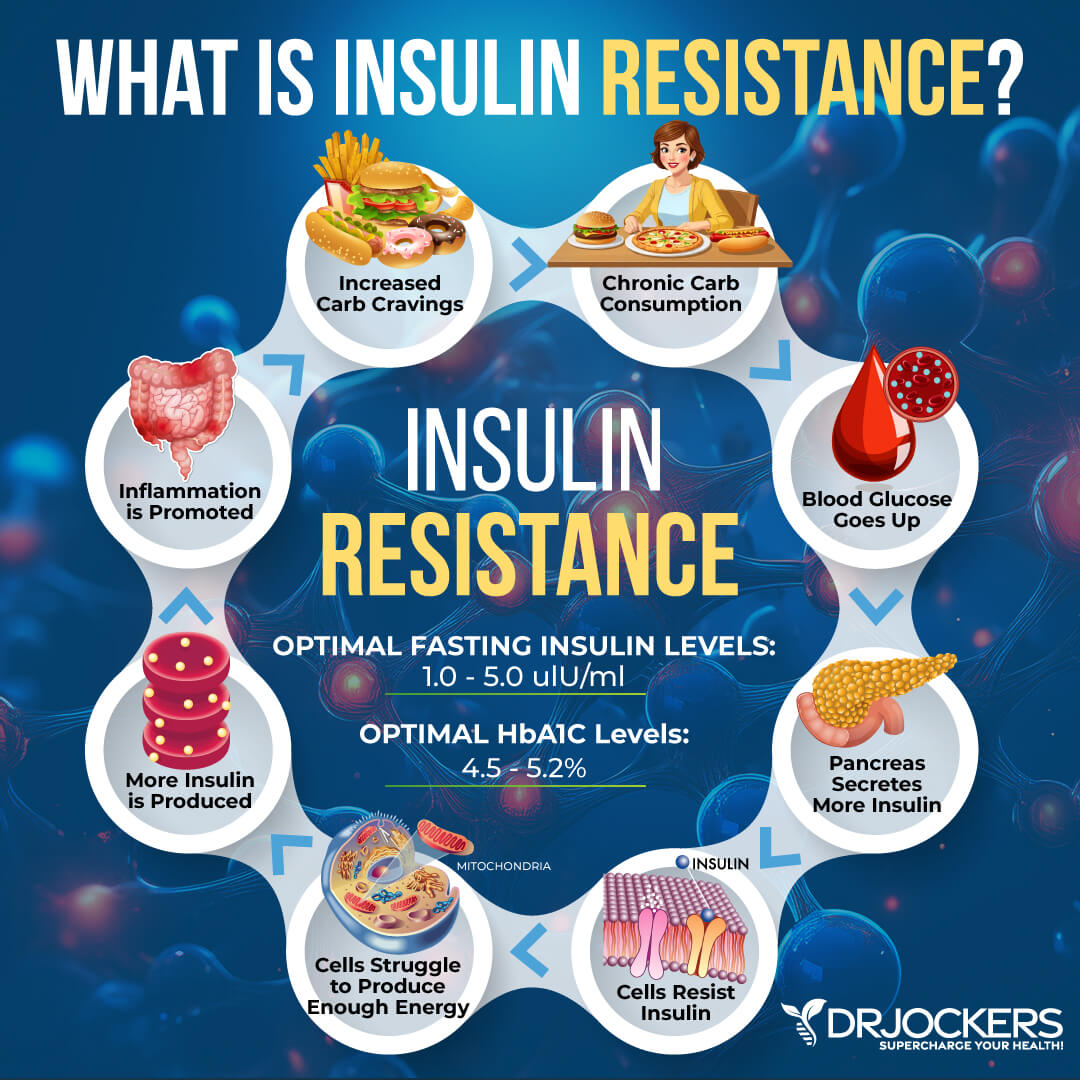
Lifestyle Factors
Certain lifestyle factors may also affect your nutrient levels. For example, sun exposure is key. Not all nutrients come from food. While some foods include vitamin D, most of your vitamin D comes from the sun.
Rather, your skin converts this hormone-like nutrient through sun exposure. Not getting enough sunshine runs the risk of nutrient deficiencies. According to a 2023 review published in Cureus, sun exposure is the primary way to meet your vitamin D needs and higher levels of vitamin D may reduce the risk of cancer, including melanoma (11).
Moreover, high levels of physical activity can also interfere with your nutrient levels. Sweating too much or heat exposure may lead to dehydration and electrolyte loss, including low sodium, magnesium, potassium, calcium, and chloride levels.
According to a 2017 review published in Sports Medicine, water and electrolyte loss due to sweating and intense exercise may impair performance (12). Burning too many calories through exercise but not replenishing them with enough food may also cause issues.
According to a 2019 review published in Integrative Medicine (Encinitas), chronically elevated cortisol from chronic stress may cause impaired digestive functions and poor nutrient absorption (6). Chronic stress may also increase your need for certain nutrients, including magnesium, zinc, vitamin D, B vitamins, and vitamin C. Not meeting your needs for these nutrients may lead to nutrient deficiencies.
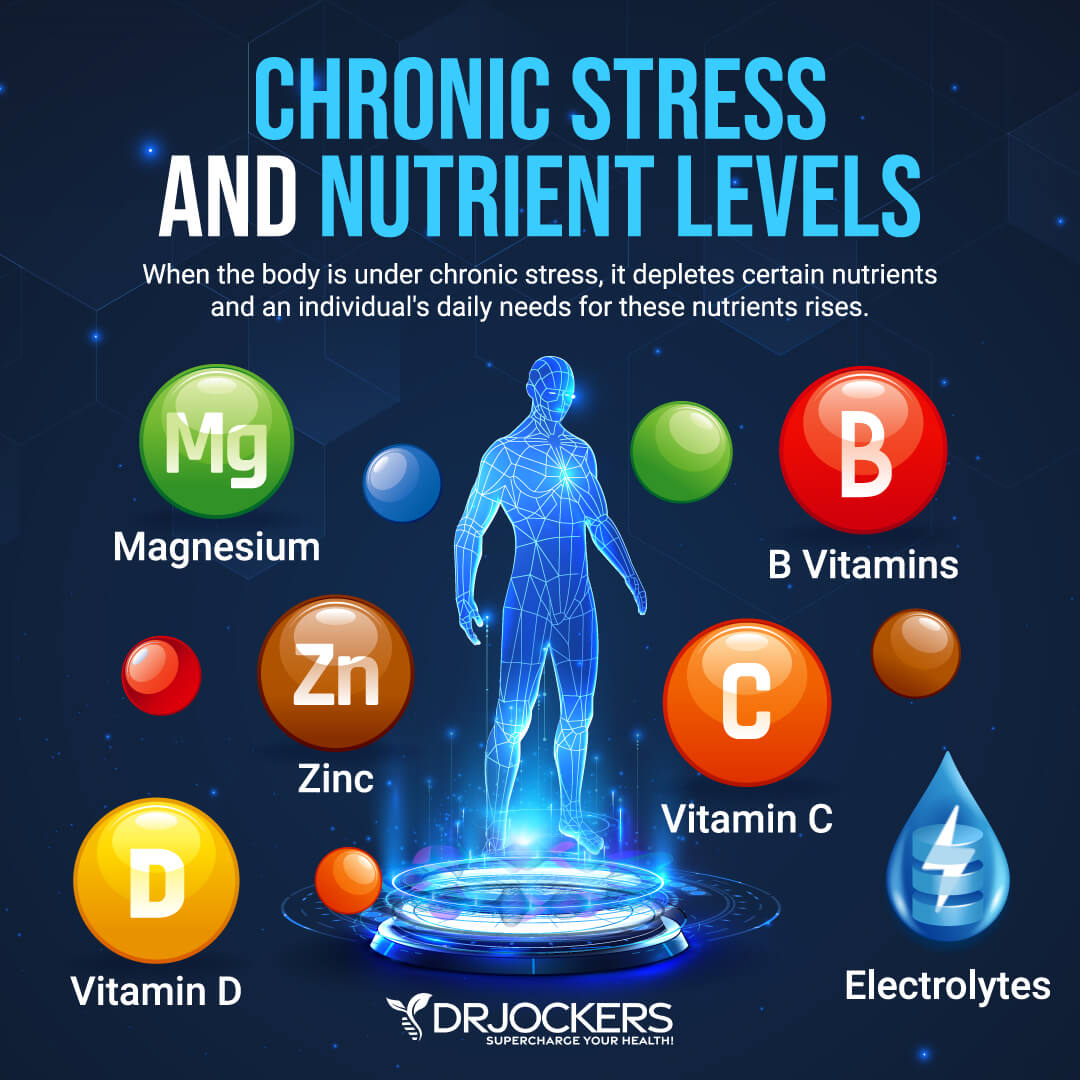
Health Challenges & Disease Burden
Acute health issues, chronic health challenges, and disease may also increase your risk of nutrient deficiencies. According to a 2017 review published in Nutrients, nutrient deficiencies and sometimes nutrient excess can be linked to many infectious and inflammatory diseases (13).
Acute infections may increase your need for vitamin C, zinc, or glutamine. Acute gut infection may lead to dehydration, electrolyte loss, or other nutrient loss. Chronic digestive issues, such as Crohn’s disease, may interfere with the breakdown, absorption, and digestion of nutrients.
Hypothyroidism and excess alcohol intake may also affect digestion, nutrient absorption, and nutrient metabolism. Heavy menstrual cycles or high blood loss due to other issues can increase the risk of iron deficiency and anemia.

Medication Usage
Certain medications may also interact with certain nutrients, reduce absorption, or deplete nutrient levels. For example, according to a 2021 review published in the World Journal of Diabetes, long-term use of metformin for type 2 diabetes may lead to vitamin B12 depletion (14).
According to a 1998 review published in the Cochrane Database of Systematic Reviews, corticosteroids may cause potassium and calcium depletion (15). Diuretics may increase the risk of low magnesium, potassium, vitamin B1, and zinc levels (16). According to a 2021 review published in Exploratory Research in Clinical and Social Pharmacology, nutrient deficiencies related to medication are a higher risk in older adults (17).
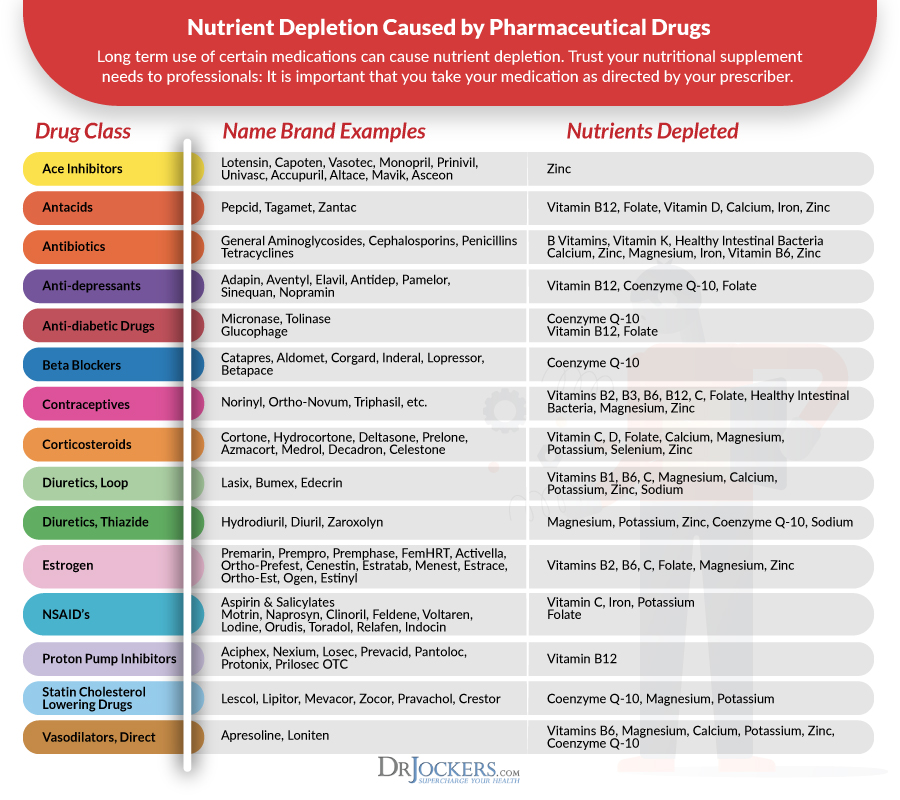
Environmental Toxin Exposure and Overall Toxic Load
Our world is full of environmental toxins that can affect our health in so many ways. According to a 2007 review published in The Journal of Nutrition, environmental toxin exposure may affect nutritional status (18).
Environmental toxin exposure and a high overall toxin load may interfere with your body’s ability to absorb nutrients properly. It may also create inflammation and chronic health issues that may increase your need for nutrients yet interfere with nutrient absorption.
Proper detoxification and reducing your toxin load are key to lowering the effects of toxins. According to a 2021 review published in Environmental Health Perspective, improving nutrient levels may help to improve the effects of environmental toxicity (19).
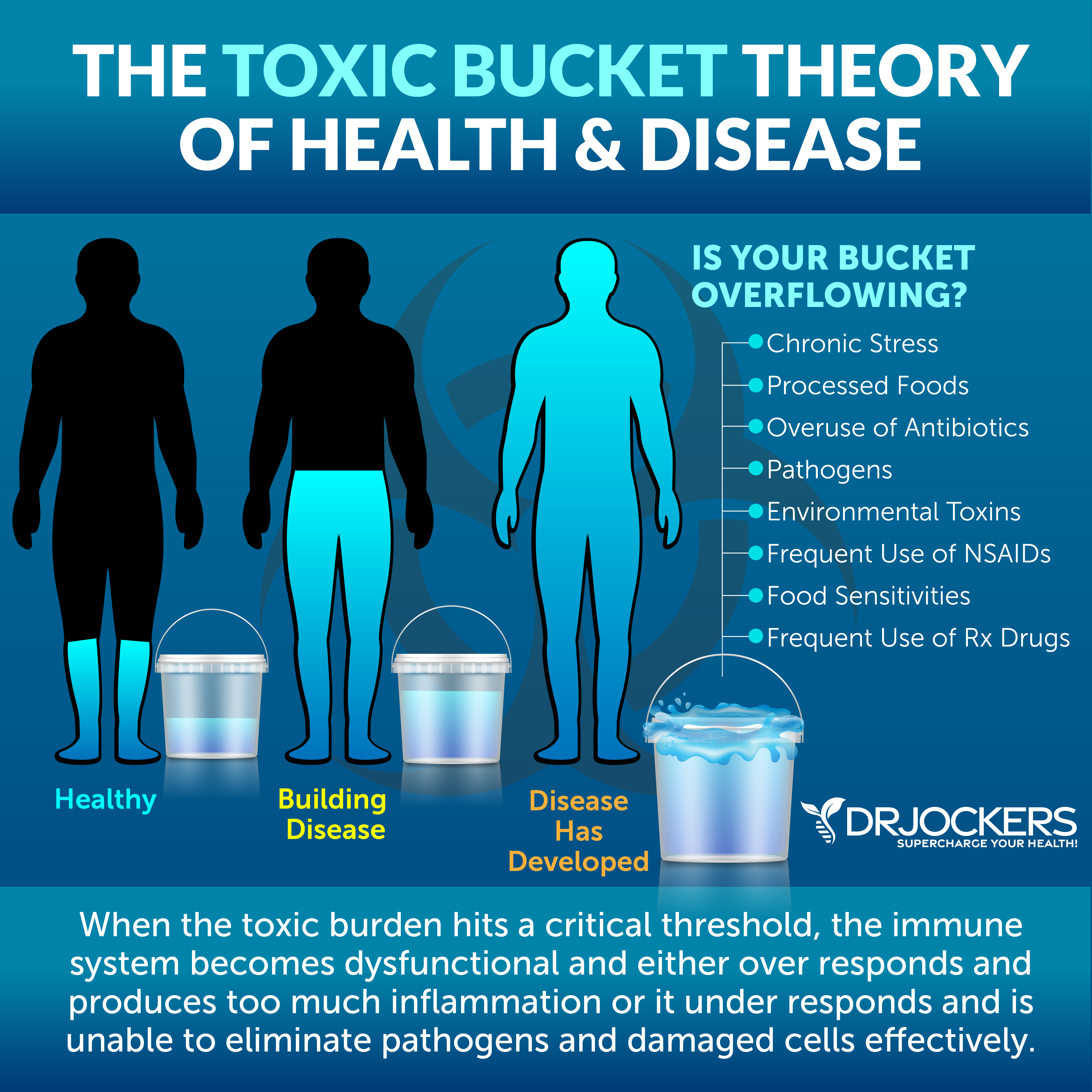
Genetics
Genetics may also play a role in nutrient deficiencies. Everyone has different needs. Some people may need more vitamin B12 or folate than others. Others may need more zinc or more vitamin B6.
For example, those with MTHFR genetic issues need methylated forms of B vitamins and won’t be able to utilize other forms well. According to a 2018 study published in the Journal of Medical Biochemistry, MTHFR polymorphism may increase the risk of vitamin B12 deficiencies (20). The point is we need to look at individual differences on a genetic level.
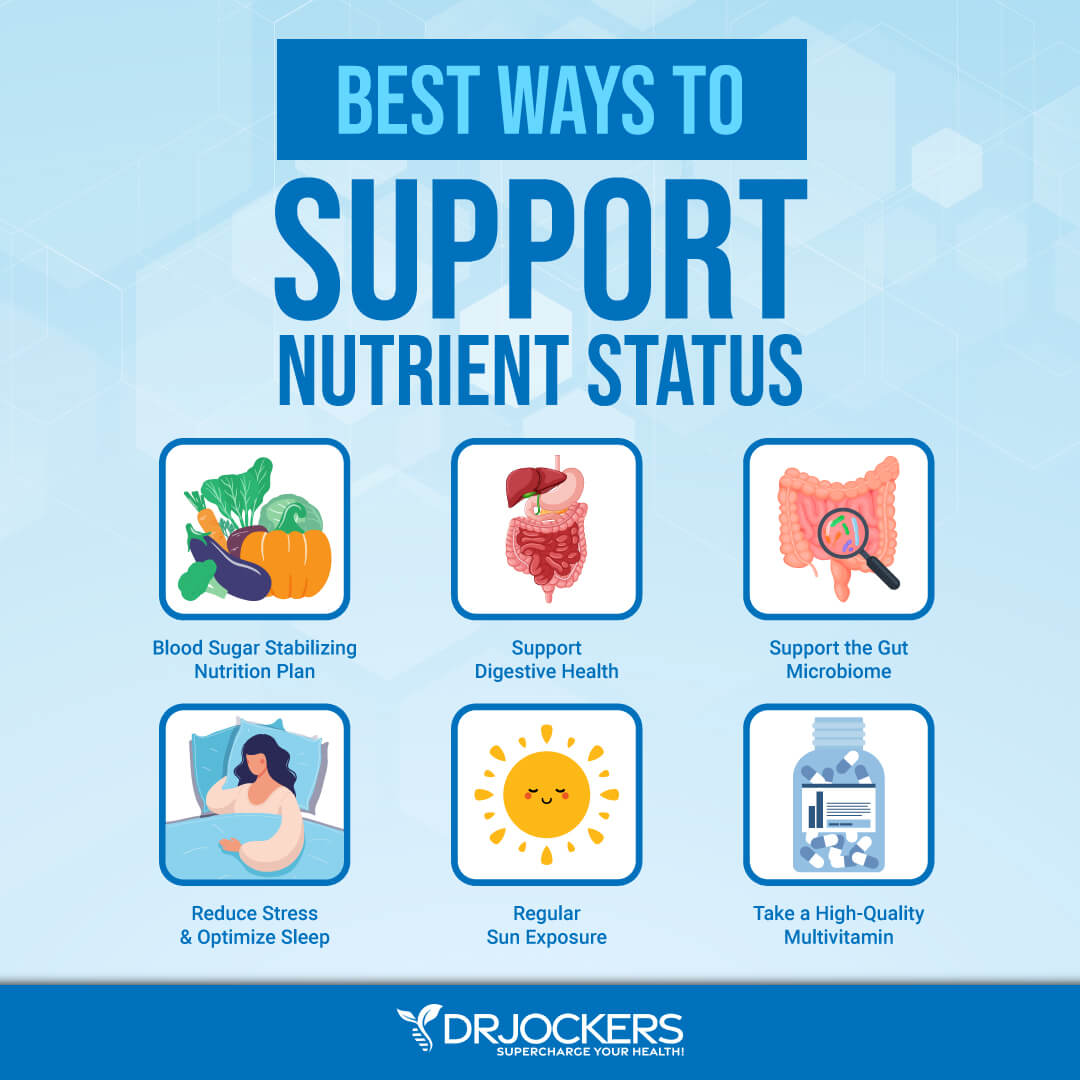
Best Ways to Support Nutrient Status
So, how can you ensure optimal nutrient levels? Food is a part of it, but it’s so much more than that. Let’s look at the best ways to support an optimal nutrient status to improve your health.
Anti-Inflammatory Nutrition Plan
Following an anti-inflammatory nutrition plan can help you ensure optimal nutrient intake and reduce the risk of imbalances that may interfere with nutrient absorption. Avoid refined sugar, refined oil, deep-fried food, junk food, artificial ingredients, additives, and overly processed food products.
Eat lots of greens, vegetables, sprouts, fermented foods, fruits, nuts, seeds, grass-fed meat, pasture-raised eggs, pasture-raised poultry, wild-caught fish and seafood, and wild game. Focus on organic food as much as possible to ensure high nutrient quality. Eating local and fresh-picked from a farm or your garden can help to reduce nutrient depletion due to early picking, transport, and packaging.
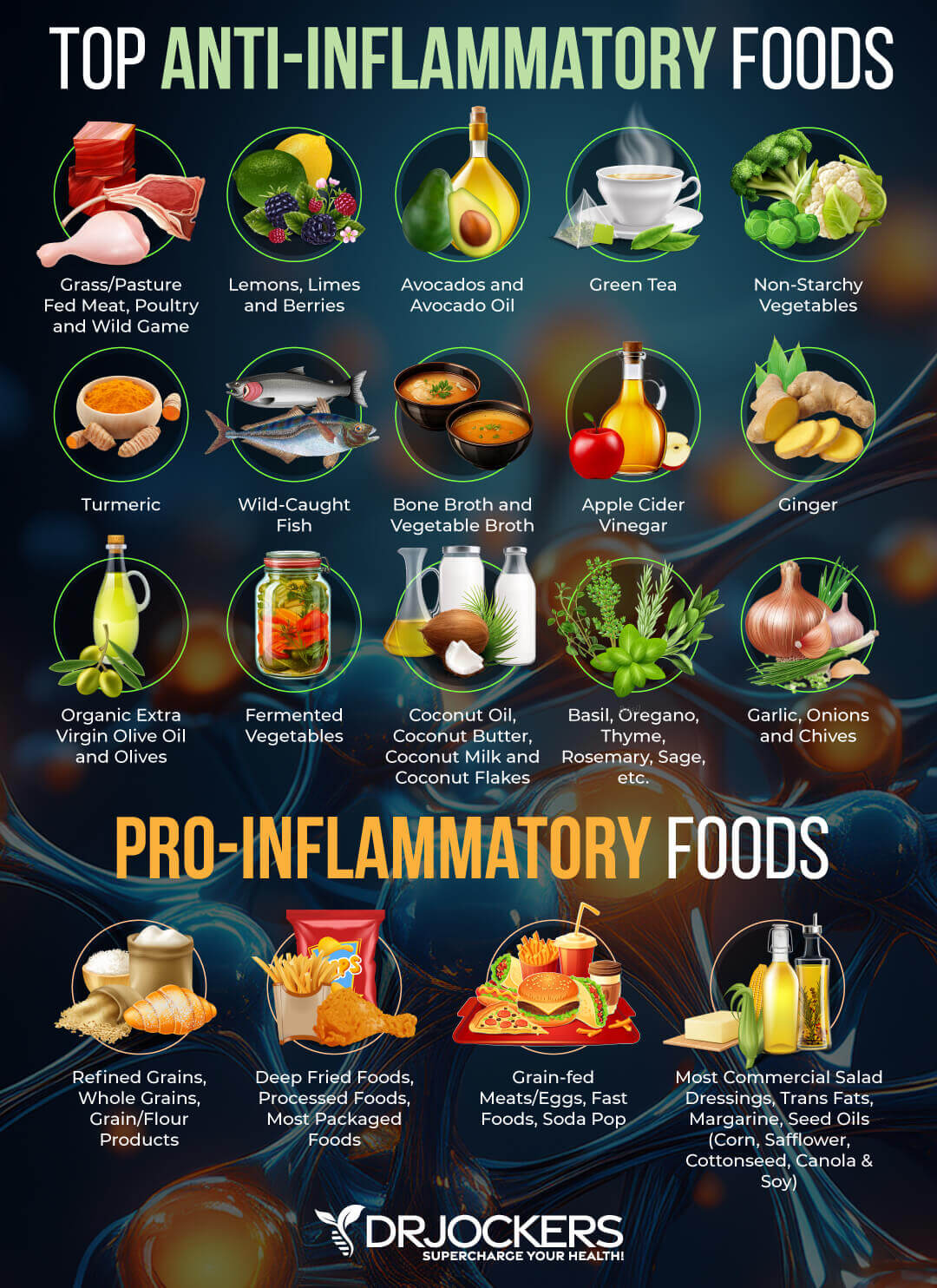
Support Digestive Health and Stomach Acid Levels
Supporting digestive health, improving stomach acid production, bile flow, and enzyme production is critical. Of course, a gut-friendly, anti-inflammatory diet is key to doing this.
Moreover, to improve your stomach acid levels, I recommend using apple cider vinegar water, adding ginger to your meals or tea, holding off on drinking water until after your meal, eating slowly, chewing your food well, hydrating well outside of mealtimes, and using liquid nutrition, such as protein shakes.
You may try supplementing with betaine hydrochloric acid, such as Acid Pro-Zyme, for improved stomach acid production. You may also try Super Digest HCL with betaine hydrochloride (HCI) for proper stomach acidity and optimal breakdown of food. You can learn more about improving your stomach acid levels in this article.
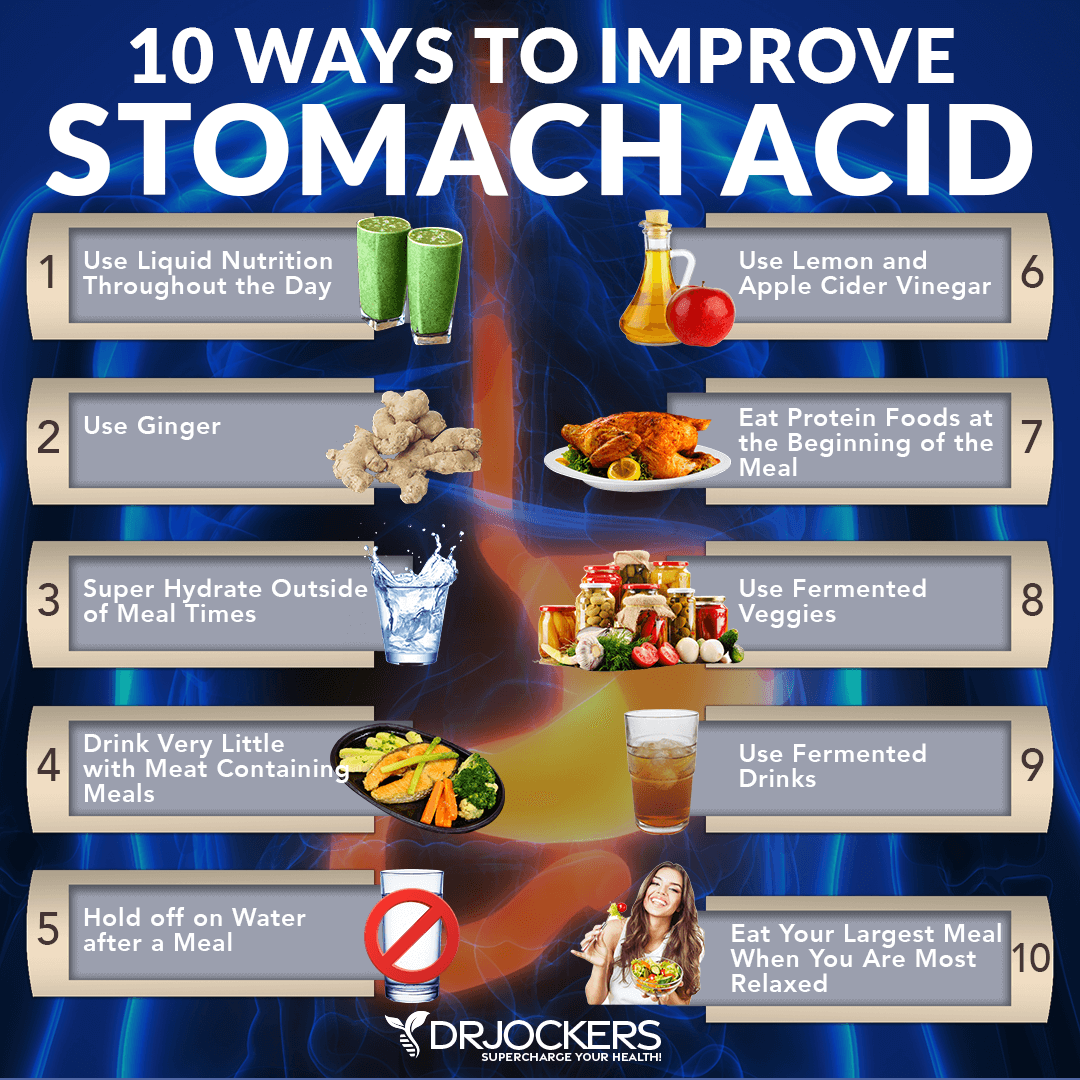
Improve Bile Flow
For improve bile flow, liver health, and gallbladder health, I recommend consuming apple cider vinegar, lemon, lime, artichoke, parsley, cucumber, celery, mint, cilantro, radishes, milk thistle, dandelion greens, ginger, turmeric, sauerkraut, and green tea.
You may try KL Support, a supplement that combines herbs and nutrients traditionally used to support kidney and liver health, including beetroot, collinsonia (stoneroot), gynostemma, marshmallow root, milk thistle seed, NAC, and parsley leaf.
You may also try Advanced TUDCA, which is a bioactive carbon product that is designed to promote healthy bile production, assist in drainage and provide immune support throughout the kidney and liver.
You may also try Bile Flow Support, which is a liver support formula that provides your body with nutrients involved in bile flow and fat metabolism, including the bile salts choline, taurine, and methionine.
The bitter herbs dandelion and celandine are added to allow optimal bile flow and healthy liver function. You may learn more about supporting your bile flow by reading this article.
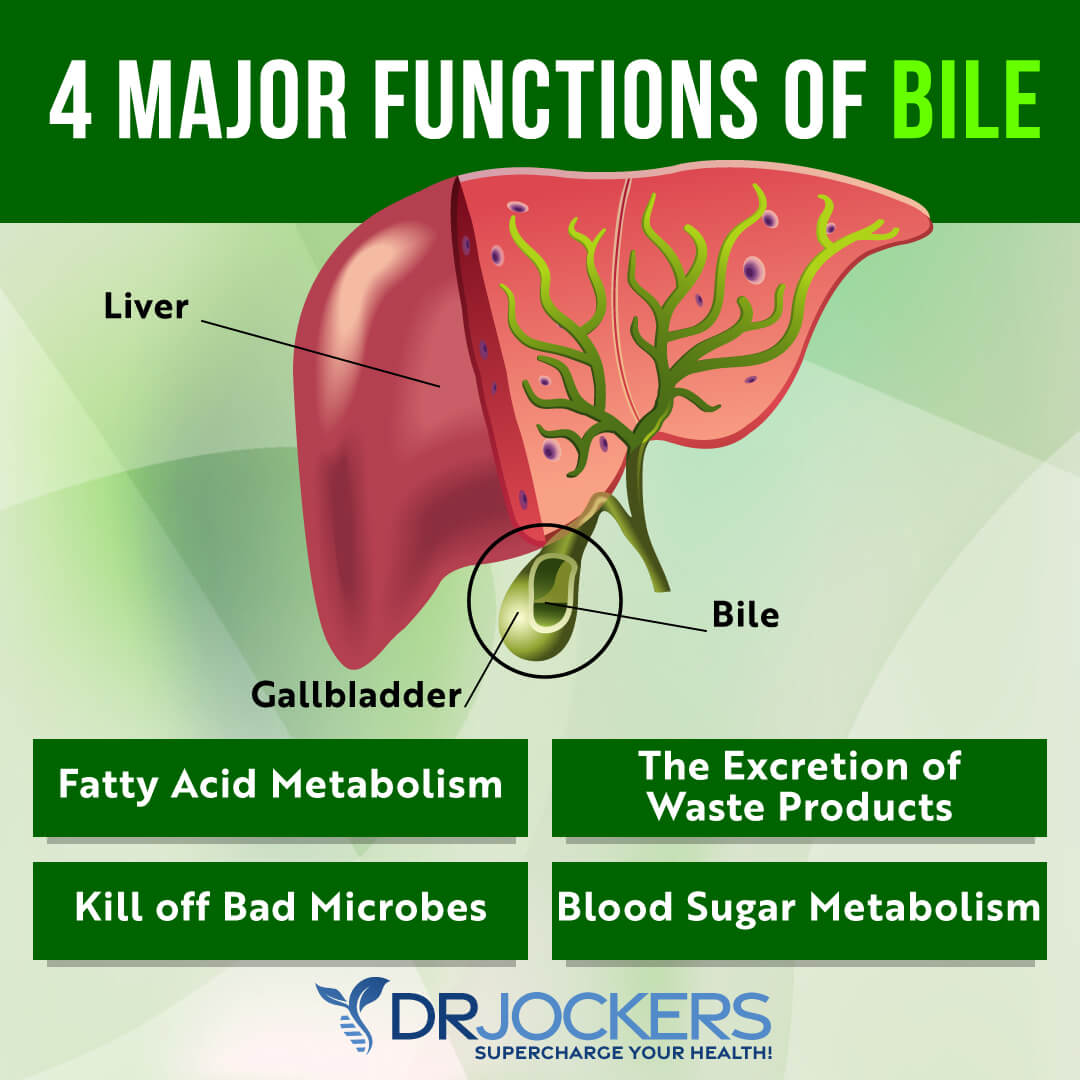
Further Support Digestive Health
To support your digestion, I recommend taking good quality digestive enzymes before meals. For gut health and digestive support, try Gut Repair. To support detoxification and remove toxins from your gut, you may also consider taking bioactive carbons, activated charcoal, or zeolite.
To improve your gut microbiome health, I recommend taking high-quality daily probiotics. You may also try probiotic-rich, fermented foods, such as sauerkraut, fermented vegetables, coconut kimchi, kefir, and kombucha.
The exception is if you have histamine intolerance. Fermented foods are high in histamine and can be triggering if you have histamine intolerance. To support healthy gut bacteria, you may add more prebiotic-rich foods, such as Jerusalem artichokes, apples, jicama, garlic, onion, and leeks. However, prebiotics-rich foods can be triggering for some people and are not appropriate if you are on a low-FODMAP or carnivore diet.
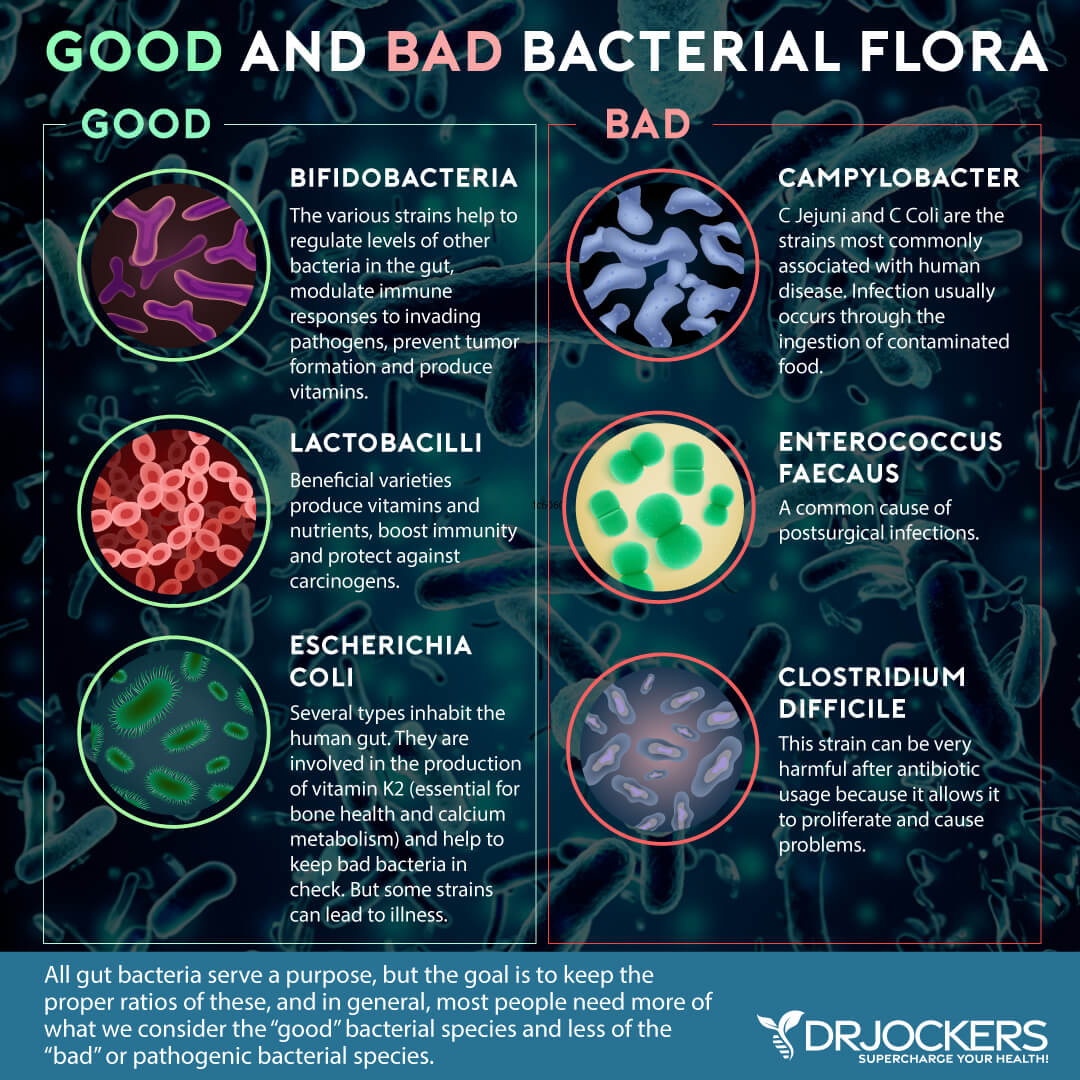
Reduce Stress & Optimize Sleep
Reducing stress and optimizing sleep is critical for optimal nutrient levels, proper nutrient absorption, and low inflammation levels. I recommend practicing breathwork, meditation, gratitude, and mindfulness to reduce stress and support sleep. Avoid electronics, sugar, alcohol, and heavy food in the evening close to bedtime.
If you must use electronics, use blue-light-blocking glasses and use blue light-blocking light bulbs in your home. Engage in activities that can help you wind down, such as reading, taking a bath, journaling, or calming family time.
Support your sleep with a supportive mattress and pillows, comfortable bedding, blackout curtains, and an eye mask. Sleeping in a cool room around 65F may help to support your sleep as well.

Regular Sun Exposure
Not enough sunshine may run the risk of vitamin D deficiencies. I recommend getting regular sun exposure daily. When the weather allows it, spend at least 15 to 30 minutes in the sun each day with as little clothes as possible.
For example, you may workout in shorts without a shirt or if you are a woman, only in a sports bra or tank top if it’s warm enough to combine sun exposure with exercise. If it’s above 45F and sunny, you will see my workout outside.
However, it’s important to be smart about sun exposure. Don’t burn your skin! Avoid the midday sun, especially if your skin is sensitive. If you are using sunscreen, use non-toxic formulas over chemical-filled conventional options. Spending shorter times out in the sun throughout the day instead of a long chunk may help you get plenty of vitamin D from the sun without burning your skin.
Supplementation is most of the time critical to improving your vitamin D levels. Pairing vitamin D3 with vitamin K2 helps improve calcium absorption and inflammation control. I recommend taking a vitamin D3 supplement with at least 3,000-5,000 IU’s of vitamin D3 and at least 90 mcg of vitamin K2.
For skin health, I specifically recommend liposomal vitamin D3. I highly recommend Micelle Liposomal D3/K2. To ensure optimal levels, you may get your vitamin D levels tested with a solo vitamin D test or as part of the Comprehensive Blood Analysis.
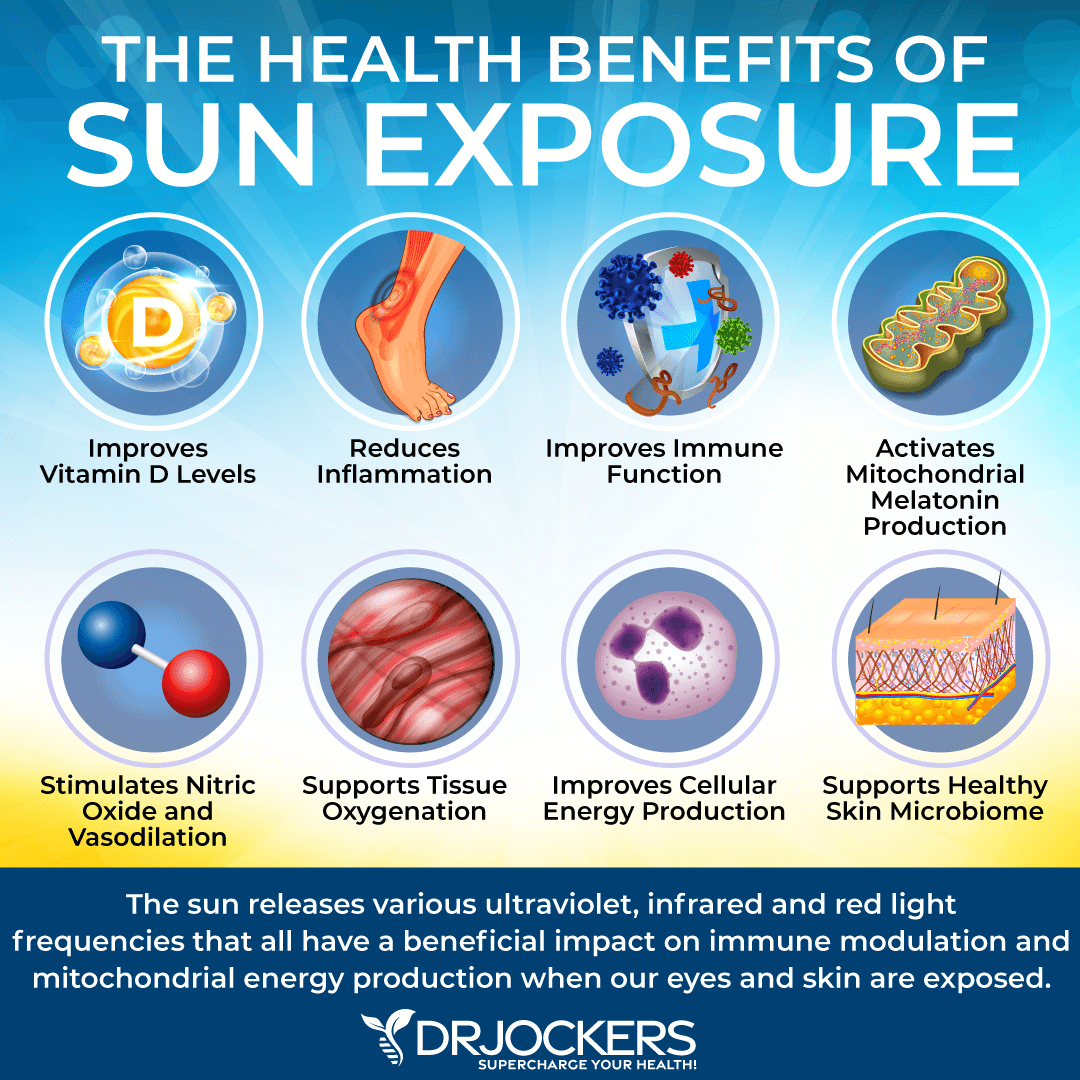
Take a Quality Multivitamin
Finally, I recommend that you take a quality multivitamin. I recommend Complete Multi-Vitamin. This multivitamin supplement is loaded with B vitamins, folate, vitamins K1 and K2, vitamin E, vitamin C, rutin, quercetin, and hesperidin. It helps to improve key nutrient levels, support healthy blood sugar, improve detoxification pathways, reduce oxidative stress, and improve mood and mental clarity.
This supplement is designed with select minerals in chelated form. Chelation is the bonding of minerals to amino acids, which results in molecules that are more bioavailable and better absorbed and assimilated by the body.
The chelated iron in this Complete Multi-Vitamin containing copper will not result in constipation, or GI upset as may be experienced from other forms of supplemental iron. Take 4 capsules per day (2 with each meal) or as directed by your health-care practitioner. This product is recommended for those with adequate intake and absorption of iron but who may benefit from additional copper.
Final Thoughts
Correcting the root issues behind nutrient deficiencies and taking steps to improve nutrient intake and nutrient absorption can help you achieve optimal nutrient levels and improve your overall health. I recommend following my top recommendations in this article to support an optimal nutrient status to improve your health.
If you want to work with a functional health coach, I recommend this article with tips on how to find a great coach. On our website, we offer long-distance functional health coaching programs. For further support with your health goals, just reach out—our fantastic coaches are here to support your journey.
Inflammation Crushing Ebundle
The Inflammation Crushing Ebundle is designed to help you improve your brain, liver, immune system and discover the healing strategies, foods and recipes to burn fat, reduce inflammation and Thrive in Life!
As a doctor of natural medicine, I have spent the past 20 years studying the best healing strategies and worked with hundreds of coaching clients, helping them overcome chronic health conditions and optimize their overall health.
In our Inflammation Crushing Ebundle, I have put together my very best strategies to reduce inflammation and optimize your healing potential. Take a look at what you will get inside these valuable guides below!
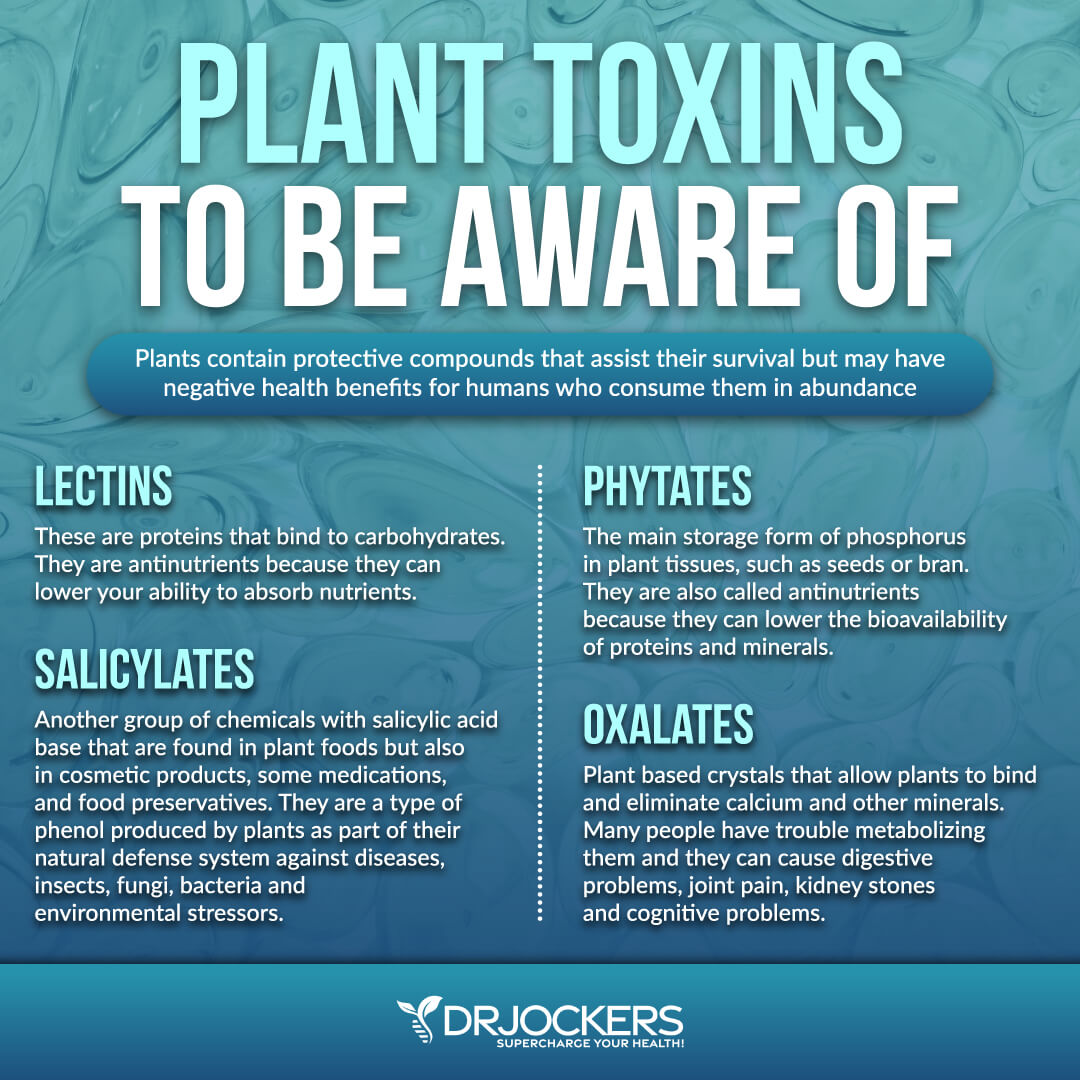
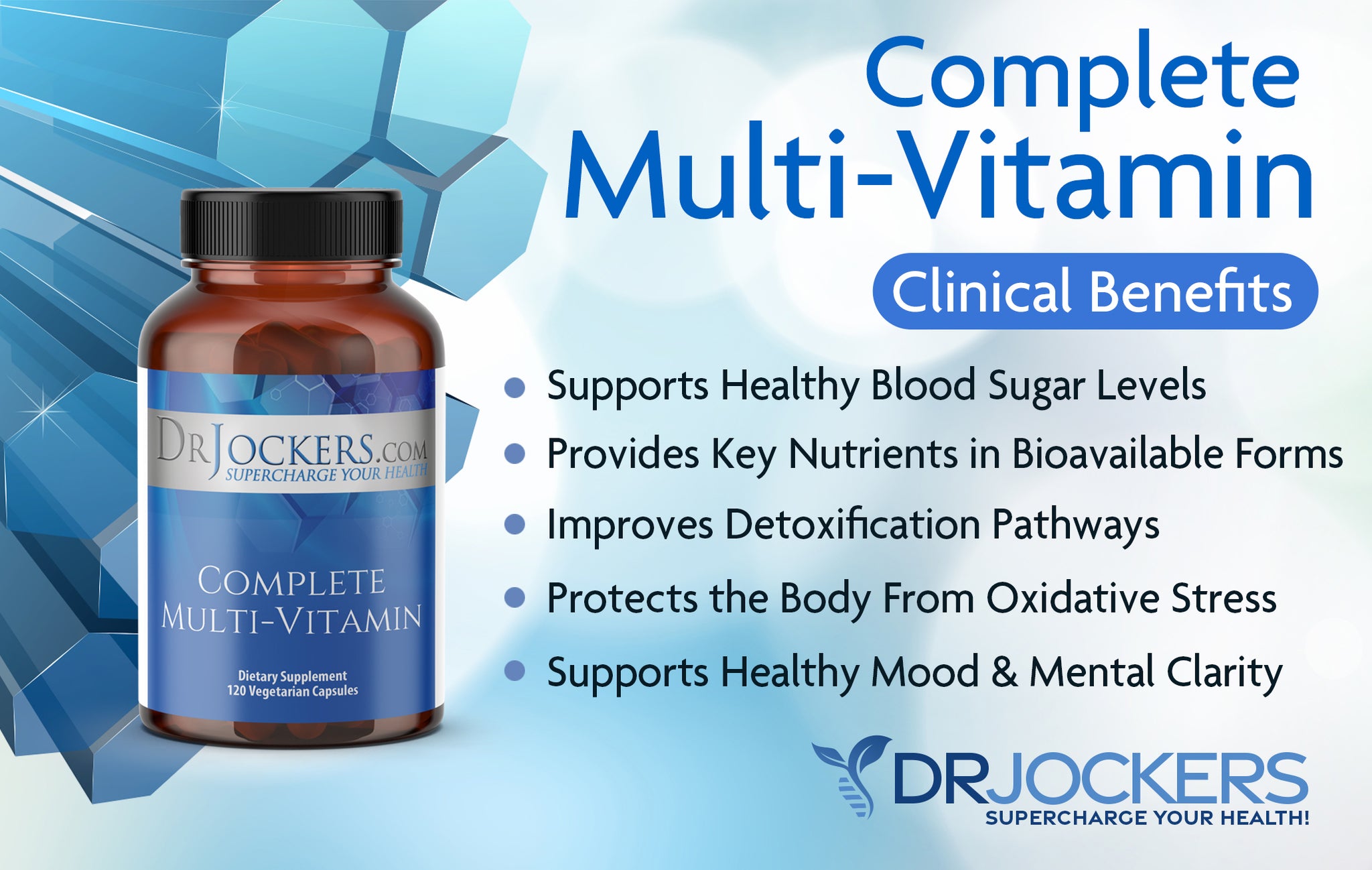




Great, complete article for eating our needed nutrients. My problem is dosages/servings. I am 73, female, 128 lbs. and get quite confused about how much fruit, healthy fats, proteins to eat at each meal. Reading how many grams of fruit or protein, etc. isn’t too helpful. I need to see what the optimum servings look like on a example plates for daily meals. I suspect I am not the only one who would like to read and see clearer guidelines (pictures/drawings) rather than metric measurement dosages.
I read many nutrition books and it still is a mystery for me.
Yes, this is where working with a functional health coach can be very helpful: https://drjockers.lpages.co/long-distance-coaching-dr-jockers/
I have a big big problem with super high cholesterol. I do not want to take drugs. Help advise???
Edna – Kris here a reader like you.
GRAINS Yes vLDL is a result of eating too much grains vs healthy fats.
Go grain free, eat good fat and make your own yogurt with Lactobacillus reuteri
(This is a species of probiotic bacteria. It may provide some benefits for cholesterol levels, reducing H. pylori levels.)
Sorry to hear that, here is a helpful article: https://drjockers.com/cholesterol-what-is-it-and-what-are-healthy-levels/
I know how important it is to have good acid levels for digestion and absorbing nutrients.
How can GERD be addressed without having to take antacids that are supposed to protect the stomach/esophagus from the reflux of acid?
Hello Perry
You could try Marshmallow and/or Slippery Elm for GERD. Better than the Omeprazole/Lanzaprazole meds normally issued by your doctor for GERD.
Look for the best supplier who doesn’t add bulk filler ingredients. The purer the better.
In the UK we have:
British-Supplements.net
You could read the reviews on here and see if they’re helpful for you?
I cured reflux by 24 hour water fasting,
Then you have to work out “What gave you reflux?”
It is crazy, when you do soft muscle sports injury, the doctor does not give you pain killers, and say, “see how your sports training goes and come back to me for stronger pain killers, if it gets worse.”
If you are a sugar burner you could eat light meal for dinner, do not eat anything the next morning, every time you feel hungry have a glass of water (drinking glass of water does work for killing hunger pains) stop drinking half a hour before your next meal “dinner” and see how it goes.
Hello,
You mention the anti-nutrients in plants, while on the other hand you state to eat them to help with gut issues. Should we eat more grass-fed, New Zealand meat instead of plants?
Further, I, as a cancer survivor am hesitant to eat too much protein, esp., red meat.
Thanks.
How would you class damage done to the body by Generically Engineered (GE) Wheat (apart from leaky gut damage)
I lost 10 Kilograms (or 22 Ibs) over a month solely by stop eating GE Wheat made bread. I moved the BMI form overweight-obese borderline to Normal-Overweight borderline, I have heard of a few other stories from people that stopped eating the most commonly sold bread with GE wheat and lost weight,
Sourdough or coconut bread is a better alternative bread,
If I saw a Tee shirt been sold that said something like,
“I LOST 5 BMI units WHEN I STOPPED EATING BREAD MADE WITH GE WHEAT”
I would buy it and love to wear it, when I do not normally wear tee shirts, in public.
Hi I am disappointed to not see the oxalate explanation in this article. People need to understand that we have a bacteria in our gut that takes care of the oxalates, until we kill it off with antibiotics or certain other drugs, I personally wish there was a source to replenish that oxalobacter bacteria.
Click the oxalates hyperlink.